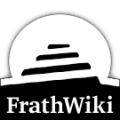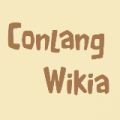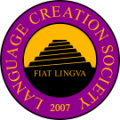Main Page/Dhannuá: Difference between revisions
Chrysophylax (talk | contribs) (Created page with "{{Front/banner/qdh}} <!-- FIRST LEFT SIDE STARTS HERE --> <div class="frontPageLeft"> <!-- left column --> <div width=420 margin=0 padding=0 style="float:left;"...") |
(No difference)
|
Revision as of 21:32, 15 May 2013
|
Specifically, the core arguments of verbs, are the two arguments (in English, subject and object) of transitive verbs:
- The dog chased the cat
And the single argument of intransitive verbs:
- The cat ran away
English has a subject, which merges the more active argument of transitive verbs with the argument of intransitive verbs, leaving the object distinct; other languages may have different strategies, or, rarely, make no distinction at all.
For conlangers, it is important to know that few languages are of merely one morphosyntactic alignment; in most cases, the alignment varies depending on context.
- The phonology - the sounds of the language.
- The grammar - the framework of the language.
- The vocabulary - the words and dictionary of the language. Enter a title in the box below to start creating your language.
<createbox> break=no preload=Template:New/Language buttonlabel=Create a Language Now! </createbox>
For more information on linguistics see our guide and the linguistics section.
<createbox> break=no preload=Template:Newword buttonlabel=Create a Word Now! prefix=Contionary: </createbox>
For more information on the Contionary, see our words and introduction!
<createbox> width=24 break=no buttonlabel=Create an Article Now! </createbox>
- Not sure where to start?
- If you are new to wikis, you may want to read the Help pages.
- For new editors: Please read our style guide, introduction guide and policies, before creating a new page.
- Adding content
- If you want to help but you're not sure where to start, try improving the various stub articles by expanding them.
- Add a new, needed category.
- Another helpful activity would be to check the list of wanted pages for frequently linked-to articles that don't exist yet.
- Providing linguistic and phonetic information.
- You can find a list of needed templates here.
- Wiki maintenance
- Help us by lending a hand with one of our current projects.
- Make your voice heard in our policy discussion.
- Clean up articles in need of attention.
- Fix broken or double redirects.
- Editorial help correcting spelling or grammar is always appreciated.
• Portuguese • Fén Ghír • Karnišna • Kihā́mmic • Skundavisk • Umbrean





